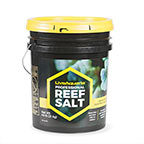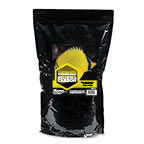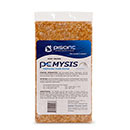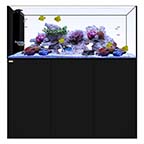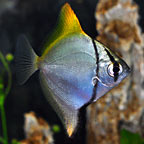Figure 8 Puffer
(Tetraodon biocellatus)
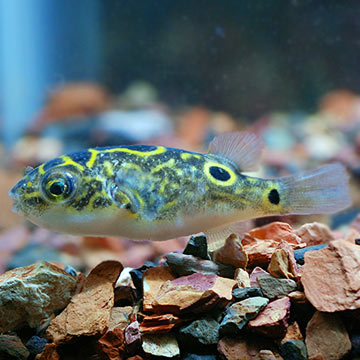
Please Note: Due to variations within species, your item may not look identical to the image provided. Approximate size range may also vary between individual specimen.
Please Note: Due to variations within species, your item may not look identical to the image provided. Approximate size range may also vary between individual specimen.
Figure 8 Puffer
(Tetraodon biocellatus)
Additional locales and sizes may be available!
Additional locales and sizes may be available! Email me when availableQuick Stats
Care Level
Moderate, Moderate
Temperament
Aggressive, Aggressive
Color Form
Black, Green, Green, Tan, Tan, White, Yellow, Yellow
Diet
Carnivore, Carnivore
Water Conditions
72-78° F, 75-82° F, KH 8-15, KH 8-15, pH 7.0-8.0, pH 7.0-8.0
Max. Size
3", 1' 3"
Family
Tetraodontidae, Tetraodontidae
Minimum Tank Size
30 gallons, 120 gallons
Compatibility
View Chart
What do these Quick Stats mean? Click here for more information
Care Level
Moderate, Moderate
Temperament
Aggressive, Aggressive
Color Form
Black, Green, Green, Tan, Tan, White, Yellow, Yellow
Diet
Carnivore, Carnivore
Water Conditions
72-78° F, 75-82° F, KH 8-15, KH 8-15, pH 7.0-8.0, pH 7.0-8.0
Max. Size
3", 1' 3"
Family
Tetraodontidae, Tetraodontidae
Minimum Tank Size
30 gallons, 120 gallons
Compatibility
View Chart
What do these Quick Stats mean? Click here for more information
Overview
The Figure 8 Puffer is dark brown to green on the back with a white underside. These fish have many yellow lines and spots covering the backside of the fish, giving it an interesting look. Also there are a few black spots that are outlined in yellow on the tail, body and nose.
The ideal aquarium will have brackish water with many plants (either real or plastic), rocks with plenty of hiding places, and a sandy bottom composed of an aragonite-based sand. The Figure 8 Puffer can be aggressive to members of its own species, so care should be taken when housed together.
Spawning occurs in brackish water. The eggs will be laid on the bottom, either on the substrate or on a flat rock. After the eggs are fertilized, the male will stay behind to guard them for approximately 7 days until the fry become waterborne.
The Figure 8 Puffer should be fed crustacean foods such as brine shrimp, krill, mollusks, and earthworms.
Approximate Purchase Size: 1/2" to 1-1/2"
Supplies You May Be Interested In
Customer Testimonials
Jacquelyn Briggs
Windham , ME
I've had my "puffy" for a few weeks now. He's the one of the cutest most personable fish I've owned. His favorite snack is live snails.
Brett
Saginaw , MI
I agree. I have had mine for 2 years now. He is very smart. And you are right! He loves the snail in our tank also. I think that this is the smartest fish... I have two Parrots also... Love them.
J D
Moorhead , MN
I feel like everyone should experience what it's like to own one of these amazing creatures! Definitely the more docile and easier puffers to take care of. The fact it only gets about 3 inches makes it easy to keep without having a huge setup. I literally had tears in my eyes when I unboxed my cute little guy because it was SO ADORABLE. It is easily my favorite fish of all time!
1-3 of 3 testimonials




